150 episodes in, and the Wait, What? podcast is undertaking a huge shift. No, it’s not relaunching, although it is spinning off in a whole new direction, and nothing will ever be the same again.
Why? Well, because hosts Jeff Lester and Graeme McMillan, who have spent the last few years dissecting and reviewing all kinds of comics on a fortnightly basis, are moving the site to a base of its own, and running it under their own steam. Formerly hosted by the Savage Critics website, Wait What will now be hosted on its own website, run by the pair.
Alongside the move, the pair have set up a Patreon in support of their podcast, which you can see here. The Patreon, which I’d suggest is one of the first times that comic critics have established a crowdfunding page of their own, has been a tremendous success thus far. They’ve hit several of their target goals, meaning that on top of the fortnightly podcast they will also be writing reviews for their site, and populating it with content.
Considering that both are established writers in their own right – Lester has written extensively for Savage Critics, whilst McMillan writes for Wired, Time, The Hollywood Reporter and more – that’s pretty good news. And on top of everything else? The podcast is teaming up with Oily Comics for a giveaway which is going on RIGHT NOW.
To find out more about all their plans, I spoke to them both about how the podcast got started, how it runs, and what we can expect in future months.
Steve: How did you two meet, to begin with?
Graeme: We met because I ripped Jeff off. That’s maybe not completely true — Jeff and I both knew Brian Hibbs, who owns San Francisco’s Comix Experience store and we’ve both worked for him at various times in our lives — but when I created the Fanboy Rampage!!! blog those many years ago, I subconsciously ripped the name off from the monthly column Jeff wrote for the Comix Experience newsletter.
It was so subconscious that, when Jeff got in touch to politely ask if I’d done it, my first response was “Of course I didn’t, what are you talking about?” It was my first experience with riding on Jeff’s coattails, but not my last.
Jeff: Mine is the Fanboy Rampage of Earth Two: technically, it came first, but it’s mostly a footnote to Graeme’s. I’m just glad I get to team up with him more frequently than once a year and I don’t have to have the rest of the JSA in tow.
Steve: When did the idea for Wait, What come about? Were you aware of other comic podcasts around, and wanted to get involved yourselves?
Graeme: The short version is, we wanted an excuse to talk comic stuff to each other. I was definitely aware of other comic podcasts, but not that many. We started five years ago, and I want to say I was only really aware of something like Word Balloon at the time? Definitely nothing as conversational or, for that matter, honest as what Wait, What? is.
Jeff: We actually owe a debt of gratitude to David Brothers, who as I recall shamed Graeme into finally buying the headset so we could actually start recording. And David’s 4th Letter podcast with Gavin Jasper and Esther Inglis-Arkell, along with Funnybook Babylon, were the first real podcasts I checked out. But Graeme was way more aware of other comic podcasts than I am—between having a really short commute and an inability to multitask, I can’t keep up—and that’s pretty much been the case ever since.
Steve: How did you develop the style of the show? Was the interest always in having a show which could run at length, and talk about any aspect of comics you wanted?
Graeme: The style of the show developed… unintentionally? I think that’s fair to say. When it first started, it was far more organized and compact than it’s become. We used to edit the longer conversations into shorter episodes, so that one session might make two or three episodes, but there was something about that that felt very artificial, and arbitrary — and also problematic, when we’d refer back to things that we’d said earlier that conversation, but two episodes back to the listener. It’s been a slow evolution, and one that’s reflected our learning curve as podcasters.
Jeff: We were very lucky to get feedback early on from listeners, and enough of them preferred the more organic approach of a longer conversation. It gave us the courage to really commit to that approach. Sometimes I worry it makes it difficult for new listeners to start listening to us—it seems like it’s asking for a big commitment up-front, but we have dedicated listeners who occasionally say things like, “man, if you just did three hours every other week, that’d be perfect!” And I think Graeme and I enjoy the freedom now, even if it still makes us feel “unprofessional.”
Steve: Being a completely visual medium, you’d think comics wouldn’t translate well to podcasts. Was it difficult, especially to begin with, to find ways to talk about them?
Graeme: It’s still difficult. We’re still guilty of concentrating more on the writing than the art, although having the website to post images/artwork when we’re commenting on a panel or sequence in particular has been a great help. I was going to say, it’s no different from writing about art, but that’s not true: depending on where you’re writing for, there’s the chance to feature the images RIGHT THERE beside the text, so it’s immediately put in context. You can’t do that on a podcast (or, at least, an audio podcast).
Jeff: Unfortunately, talking about the visual elements in comics and the artist’s role as a creator in Big Two bullpen-style comics is something a lot of comics criticism on the web has been kinda terrible at? Speaking for myself, that comes from having learned from my literature classes to talk—in a rudimentary way, at least—about what the writing and storytelling might be doing, but having far fewer tools for talking about, I dunno, what the artist is achieving by using a foreshortened perspective.
I think the podcast makes it easier for me to talk about the visual elements because I can do so conversationally, imprecisely, in a way I’d be too self-conscious to do in print. And it helps that Graeme will either help me out when I’m not making sense, or mock me for his own amusement. It’s a win-win situation…at least for him.
Steve: Do you think that the podcast has improved your ability to talk and analyse comics in general?
Graeme: Talking to Jeff has, more than doing the podcast, if that makes sense? He approaches things in a way that I just don’t, and it’s helped me appreciate what I’ve been reading more, and also question my assumptions on any given text.
Jeff: Yeah, I’d agree with that. Definitely. Although I think the standards are changing overall about how to talk about comics—there’s been a real push from online writers to change things up, and I think that’s helped me a lot as well.
Steve: How has the podcast developed over the years? Do you think you’ve changed as time has gone on – moved away from certain companies, moved towards certain kinds of stories, and so on?
Graeme: To an extent? As I said earlier, we started doing shorter episodes that were segments of longer conversations, and now listeners generally get the longer conversations more or less complete. Part of that’s being more comfortable doing what we do, but there’s also an element of us just KNOWING what we’re doing more now. There’s also been a bit of making mistake and then learning from them, too. I’ve said things in the past — reading into creators’ intentions, especially — that I try not to do now (Note the “try” — I still forget myself occasionally).
Jeff: I went through a couple years there where I refused to support Marvel financially, and I was worried that might modify the tenor of our conversations or what we could talk about and stay interesting. But it didn’t change things as much as I thought.
What has changed, since we started doing the podcast, is how digital has really grown as a market, and libraries carrying more graphic novels and collections than ever. I think those two factors have influenced the podcast tremendously, as it’s easier for me to stumble across material I might have missed, or to revisit material I had no interest in until it was ninety-nine cents an issue. I never would’ve ended up talking about Daddy Cool, for example, or what a thematically unified statement The Boys is for Garth Ennis, if I wasn’t able to supplement my staid comic book shop purchases with more experimentation.
Steve: A recent feature which has taken over a good hour of discussion each episode is your run-through of the Avengers books – starting right with issue #1 and tackling ten or so issues at a time. What made you want to go back and start reading and reviewing those books?
Graeme: I honestly don’t remember. I think it just seemed like a good idea at the time, and sounded like it’d be something fun and different for us to do? Jeff?
Jeff: Graeme doesn’t remember because it was his brilliant idea! I’d bought those amazing GT Corp. DVDs off eBay that contain 600 issues at a go of specific Marvel characters—Fantastic Four, Spider-Man, and The Avengers—and I’d been moaning about how I hadn’t made any time to read them. And since Graeme also had the Avengers DVD, he said, “If we make it part of the podcast, you’ll have to read them!” And he was right. (Thank God we’re only reading the first 300 issues, though.)
Steve: Has that changed your view of the characters, or the series as a whole? Do you have a new favourite Avenger, for example?
Graeme: Not so much a new favorite Avenger — I think that’ll always be a tie between the Beast, Hawkeye or the Wasp depending on who’s writing at the time — but it was an eye-opener to go back and realize how bad the Lee/Kirby issues actually are. You think of the two working on Thor and Fantastic Four, and they’re capable of such amazing stuff, and their Avengers just doesn’t work. It’s kind of surprising how long it is until the series DOES work, to be honest — and just how quickly it all comes together when everything falls into place.
Jeff: I ended up loving The Wasp during the Stan Lee and Roy Thomas years: they both wrote her as kind of flighty (pun intended, probably) and with more than a little condescension, but she was the only one who seemed to be having anything like fun…or resembled anything like an actual human being.
Steve: Are there any types of comic you wished you spent more time on – you tend to talk about any comic you want, without a particularly heavy DC/Marvel/Image bias. But are there any comics you wish you could discuss in more detail?
Graeme: I think we talk about what we “want to” talk about — as evidenced by the amount of time we spend on 2000AD on a regular basis, or Top Shelf’s Double Barrel when that was coming out. There’re certainly comics I wish I knew more about so I could talk about them more, if that doesn’t sound too odd. I should be reading and talking about more Fantagraphics books, you know? Or Drawn & Quarterly, Nobrow, SelfMadeHero, and so on. I need to get outside of my Direct Market comfort zone more.
Jeff: Man, it can be hard to follow Graeme McMillan without just saying “Ditto!” and “What Graeme said!” after everything. As for what we cover…when the only limitations are our imaginations and our budgets, it’s not long before you get really frustrated with both.
Steve: Wait, What is particularly notable because you’re “candid”. Or, to put it another way, you don’t pretend that books are good just because everybody else says so. Do you think the ‘of the moment’ nature of podcasting allows you to offer a more honest review of comics than sitting down to write a review? Once something’s been said, you can’t so easily press the delete button?
Graeme: Yes, for better and worse. There are times I would love to take something back, but there’s a lot to be said for the immediacy of the whole thing, and the way in which it gets past a lot of the inner editor for the good, as well. Plus, having someone like Jeff to bounce half-formed ideas off, knowing that there’s something about the conversational format that gives you license to be just outright wrong is pretty great, too.
Jeff: For me, this is really where Brian Hibbs’ influence shines through: I started writing reviews for comics over at the Savage Critic website and I followed his lead in never being afraid to say what I thought. So I don’t think the “of the moment” nature of podcasting affects me, at least in that regard.
What’s great is that Graeme can point out my biases, suggest alternative readings, or just flat-out call me on my shit. Also great is that the organic nature of our podcast means I can revisit a work and talk about if my opinions change, and why. That’s an aspect of criticism that gets overlooked in the written medium—the idea that these works are part of our lives and as we age and the culture ages, what they mean to us can change.
I guess it’s easier to address how art is an ongoing conversation between the work and the beholder when you’re having a literal ongoing conversation with someone?
Steve: Do you think there can be a tendency to offer better reviews to creators you like as people, or to find conflicts of interest start to influence your discussions? Graeme, you’re always quick to let people know if you received a review copy of the books you talk about, before you talk about them.
Graeme: Am I? That’s maybe self-consciousness, rather than any intentional idea of what I should do in the name of transparency. I think there’s definitely a tendency to find yourself biased when you’ve received something for free, or know the people involved — more than once, we’ve talked about a particular comic being good for something we didn’t pay for, but not worth the official price, or something similar.
It definitely feeds into not only what you say publicly about a work, but also how you read it — but then, so does whatever mood you’re in when you read something. I’ve been incredibly guilty of writing something off when I read it the first time, then going back and having an entirely different experience when I revisit it. There’s a lot that’s in there beyond the objectivity we’re always supposed to show when we’re reviewing something.
Jeff: Damn it, Graeme! “Ditto.”
Steve: You’ve taken the podcast to Patreon and gone independent, moving away from the Savage Critics website. Was this because you wanted to take more ownership of the show?
Graeme: Yeah, and also because we wanted to do more with the show — and also see if the show could give something back to us in terms of the amount of work involved.
Jeff: To be clear, Brian was always incredibly supportive of everything we did and never put any kind of restrictions on our content or anything…but he’s also a busy guy with a lot of irons in the fire. Sometimes we couldn’t change things as fast as we’d like or feel like we could experiment easily. Or a lot of times the site would be content-light and then all of a sudden everyone would contribute at once, and I’d feel like we were stepping on toes.
Paring it down to just us—as tough a decision as that was, because I think Graeme and I are both really loyal—seemed like it would be the best way to figure out what we could do, and if people were willing to support us doing it.
Steve: What were your goals with the Patreon? What did you want to use the funds for, and have you been surprised by the response?
Graeme: The goals have always veered wildly between our natural pessimism (“It’ll be great if anyone even notices us”) and wild optimism and ego (“And then, when we’re making thousands of dollars every month!”). Realistically, we wanted to see if there was some way we could use the show as the basis for something more ambitious, which we also owned and controlled. We’ve been very, very surprised by the response. It’s way beyond what either of us were realistically thinking would happen.
Jeff: ARGHHHH. “What Graeme said.”
Steve: You’re one of the first high-profile ‘comics media’ places to take to Patreon, although I’m aware several other sites will be trying it soon. Do you think this is where comics criticism has to go, now? Fewer and fewer places are paying for digital content now.
Graeme: I’m not sure if this is where it HAS to go — I got started doing this for myself, for nothing, just to get it out there, after all, and that’s as valid an aim as ever — but it’s certainly one of the directions it can go in, especially if you’re looking to do this as a way to earn money (or even just break even from the cost of buying all those comics in the first place).
The future of paid online journalism is all over the place right now — not in terms of comic stuff, although if you think about what’s happened to Comics Alliance, iFanboy, MTV Geek and other sites over the last couple of years, that’s obviously in flux as well — but in general, there’s a lot of change and turmoil right now. No-one’s worked out what “the model” for this as a business really is, yet, and they’re still trying.
The last six months have been crazy, as someone who works in this field, and I doubt it’s going to get any less turbulent any time soon.
Art by Julia Gfrörer
Jeff : I’m super hand-wringy about the state of comics criticism: I think people can only write it for so long as a labor of love before they move on to something else, because they have to eat or the pain of feeling like such a small fish in an even smaller pond gets to them.
And although I think there’s a very good case to be made that there may not be anything to write critically about comic books that weren’t written in the first hundred issues of The Comics Journal, I feel like the two biggest impediments to comics being considered the important medium they obviously are has been an inability to keep books in print long enough to become “canon,” and our inability to have someone professionally writing about comics over the decades—without both of those things, I think every generation ends up having to re-create the wheel.
We’re finally in a situation where a canon is accumulating, and access to that canon is easier than ever. And we have Understanding Comics, and writers like Heidi and Tom Spurgeon who’ve been covering things for a stretch of time now. But I think it’s super-important to find ways for the next generation of comic critics—the people who are out there now—to get paid, and paid enough so they can think, “well, I can make a living at this—a bad living, but a living—and I really care about the art form, so maybe I should give this a shot.”
Steve: What sorts of rewards are you offering?
Jeff: Since everyone who is reading this is on the Internet already, I invite you to go to http://patreon.com/waitwhatpodcast and see!
Steve: You’ve already hit several milestones for the Patreon, and will now be writing content as well as recording the podcast. Is this your ideal for the future? That Wait, What spins into a whole, affordable website of its own?
Graeme: In a perfect world, yes. Quite how workable that would be in practice remains to be seen, of course…
Jeff: Yeah, that is totally my crazy dream: that enough people will believe in us and between that and the content we’re generating, we can get enough traffic to make something like a full-fledged comics website, one that doesn’t have to rely on exclusive previews or softball coverage. We have a few of those sites. We need more.
Also—and I know he’ll hate me for saying this—but Graeme McMillan is one of the smartest, most knowledgeable writers about both the business and artistic sides of the comics industry currently working, and I know he’s also a hell of a good editor. Who doesn’t want to see what he could build if he had the funds and the support to do so?
Steve: Does this mean, ultimately, that you’re now rivals with The Beat?
Graeme: Sure, why not. (I mean, no, not really; we don’t do a fraction of what the Beat does in reality, but professional feuds are meant to be good, right? Hey, Steve! Pixie sucks! YOU HEARD ME.)
Steve: Graeme, you are BANNED from The Beat as soon as I ask this one final thing: Where can people find you online? What are you up to at the moment?
Graeme: The podcast can be found here, and it’s on Twitter here (individually, we’re also on there as @graemem and @lazybastid). Right now, I’m typing this between deadlines for the Hollywood Reporter’s Heat Vision blog, where I post every weekday, and Wired.com’s entertainment vertical, because I clearly have a lot to say on the Internet.
Jeff: And I just got back from walking on the beach!
–
Many thanks to Jeff Lester for his time! And NO THANKS AT ALL TO GRAEME for his harsh and inaccurate and wrong and WRONG opinions regarding Pixie. You are now officially banned from The Beat, grr.
On top of the links above, you can find the new Patreon site for Wait What over here. I’m pledging myself! You’re in good company if you choose to as well.




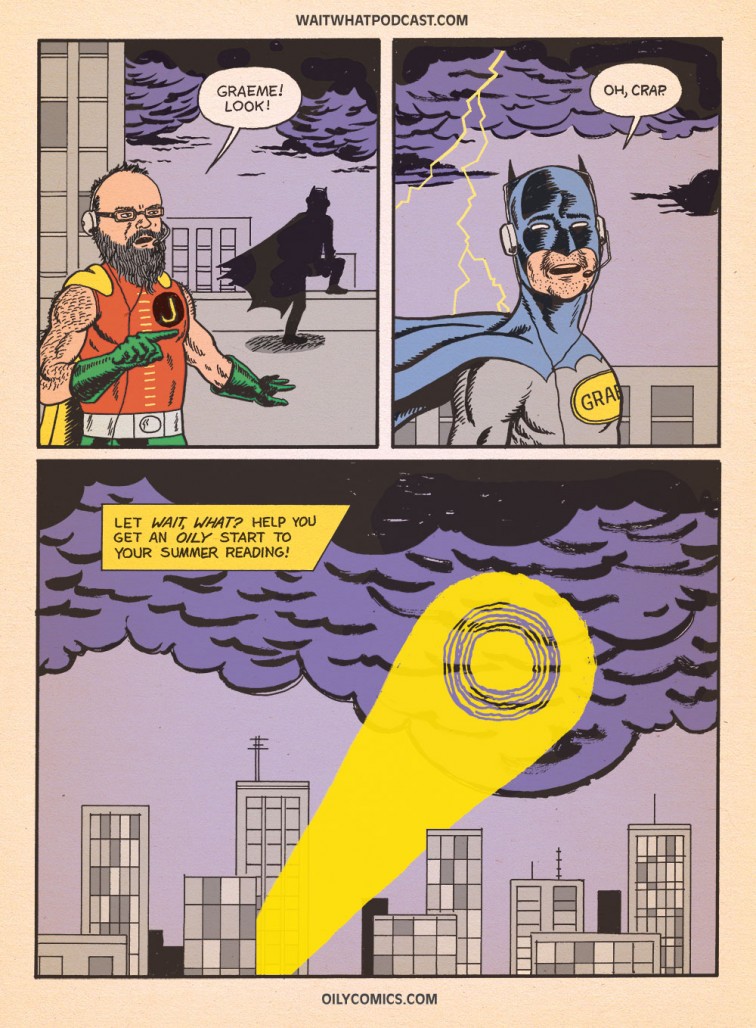
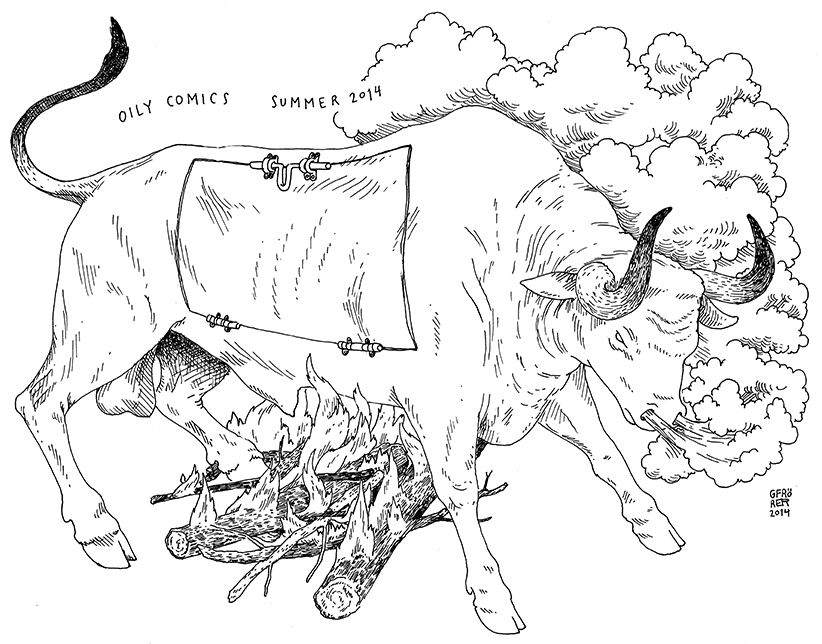
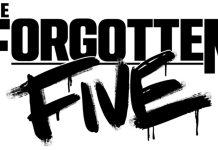
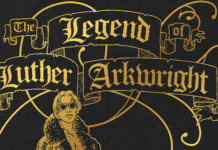





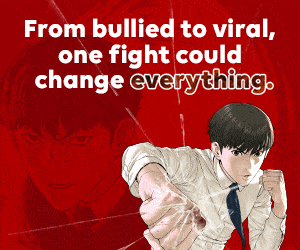

Wait, What? is my favorite Internet podcast and one of the few comics-based ‘casts I listen to regularly (House to Astonish is pretty good too). It has turned me on to many, many books I would have overlooked or not even known about. Throw in some intelligent criticism and two fun senses of humor and it’s a can’t miss. I’m a fan. Good luck with the new site!
Wait What is a great podcast…the Patreon thing disturbs me a little because by contributing, in theory for a Podcast, one is actually contributing to an expansion to the written website…I love Podcasts because I don’t have time in my life to read more websites, but lots of time when I can listen.
What’s up with this bait and switch!
Hi! The Patreon is set up to help pay for the podcast – but as they reached the goal to cover their costs and went over, they’re using the extra money to pay for their site, and as a thank you are writing articles for each new tier reached. So the Patreon is for the podcast, first and foremost! And if they reach a high enough funding, they even say they’ll do an extra podcast episode per month…
Comments are closed.